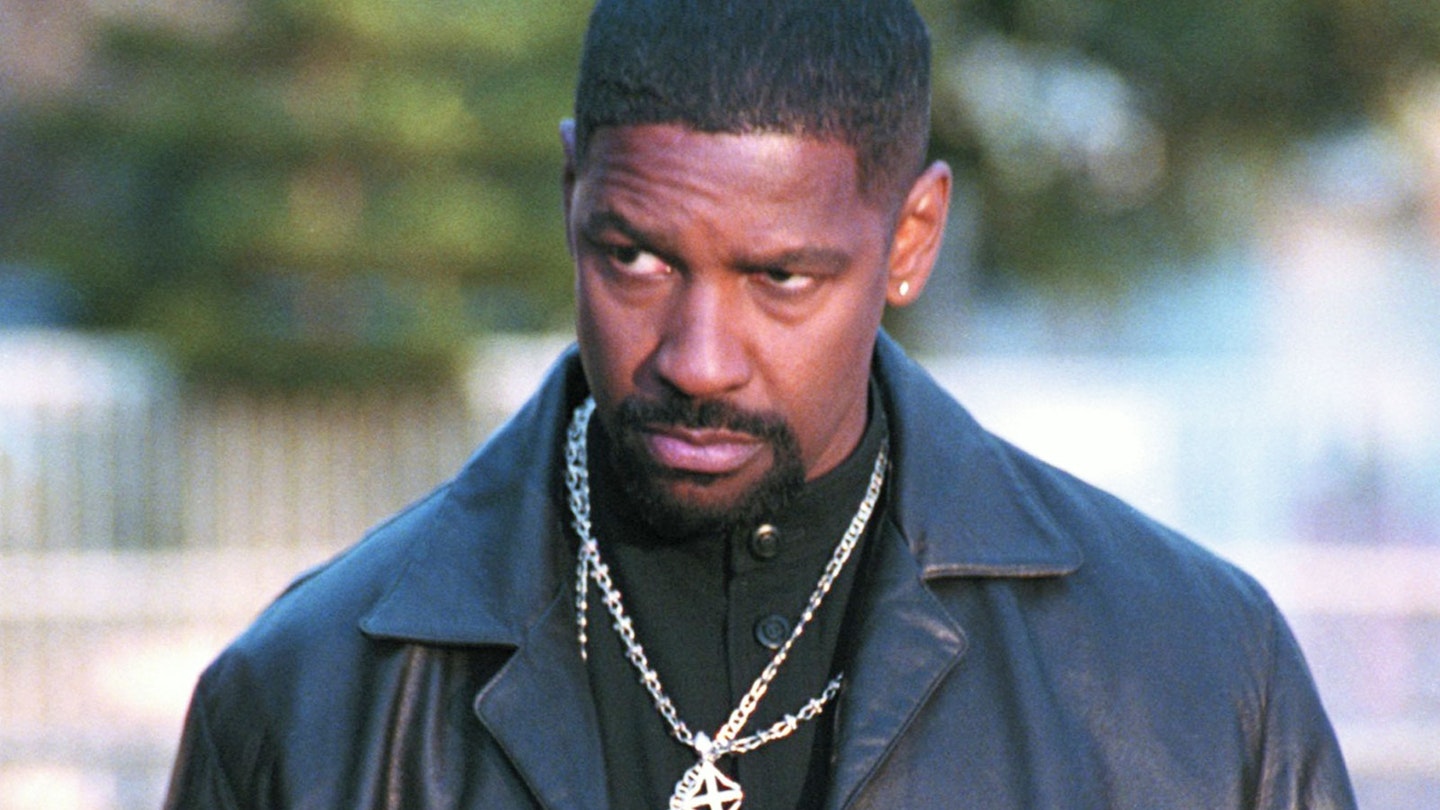Carrying around the label of America’s greatest living actor must be quite a tricky thing to have to do. You’re going about your business, trying to pick interesting projects, keeping yourself challenged. But people watch you and your acting, and want to know you, what makes you tick, how it feels to be one of America’s greatest living actors. Denzel Washington has managed to handle that mantle with grace, and while maintaining a very old-school kind of movie star mystique.
Washington’s endless charisma and ability to be both engagingly ironic and deeply sincere run through his most formative roles, along with a sense of conscience and responsibility – which he’s kicked against from time to time, too. Whichever way he pushes, he’s been malleable enough to find more gold.
With Washington’s latest cinematic outing The Equalizer 3 showing on big screens now, and the actor saying goodbye to legendary action hero Robert McCall, Empire is looking back at his pioneering career, picking out the ten very best movies from a lifetime of great, important filmmaking. Read the official list now:
10) Fences (2016)
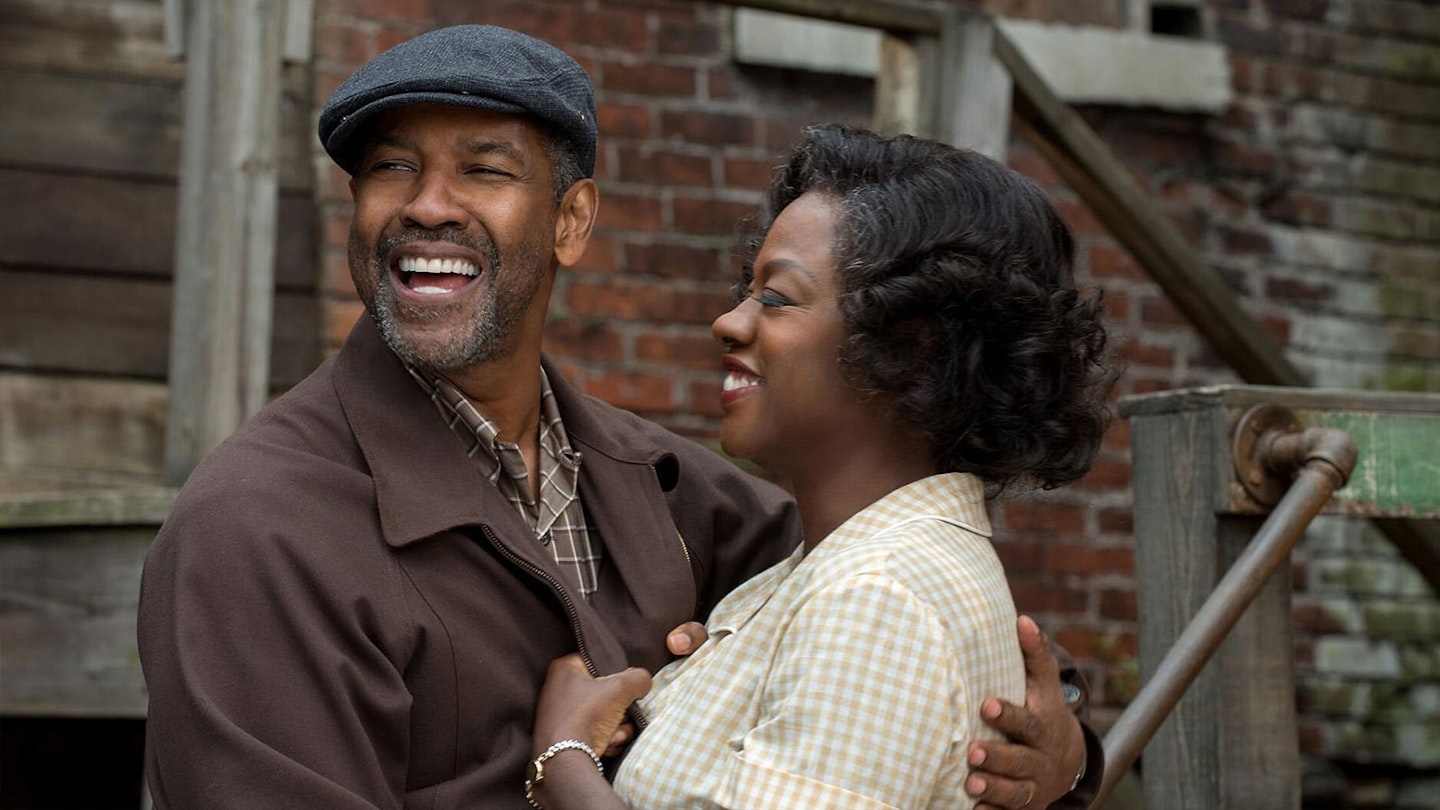
Proving that he has many sides to his talent, Washington launched his career in the theatre, and one of his most acclaimed roles was in the first Broadway revival of August Wilson's quietly powerful drama in 2010. Washington, crackling with low-key desperation and perfectly cast opposite Viola Davis, is Troy, a 50-something working class Pittsburgh native struggling to make ends meet for his family. Such was the actor's connection to the material that the theatrical version scored him a Tony (the play took Best Revival of a Play and Davis Best Actress in a Play). It was a no-brainer, then, for him to direct and star in the film version, with Davis, Mykelti Williamson, Russell Hornsby and Stephen McKinley Henderson all reprising their roles. Washington brings real power both in front of and behind the camera, and the result scored four Oscar nominations (and a win for Davis). He's directed some solid movies, but Fences may be his crowning achievement so far on that front.
9) American Gangster (2007)
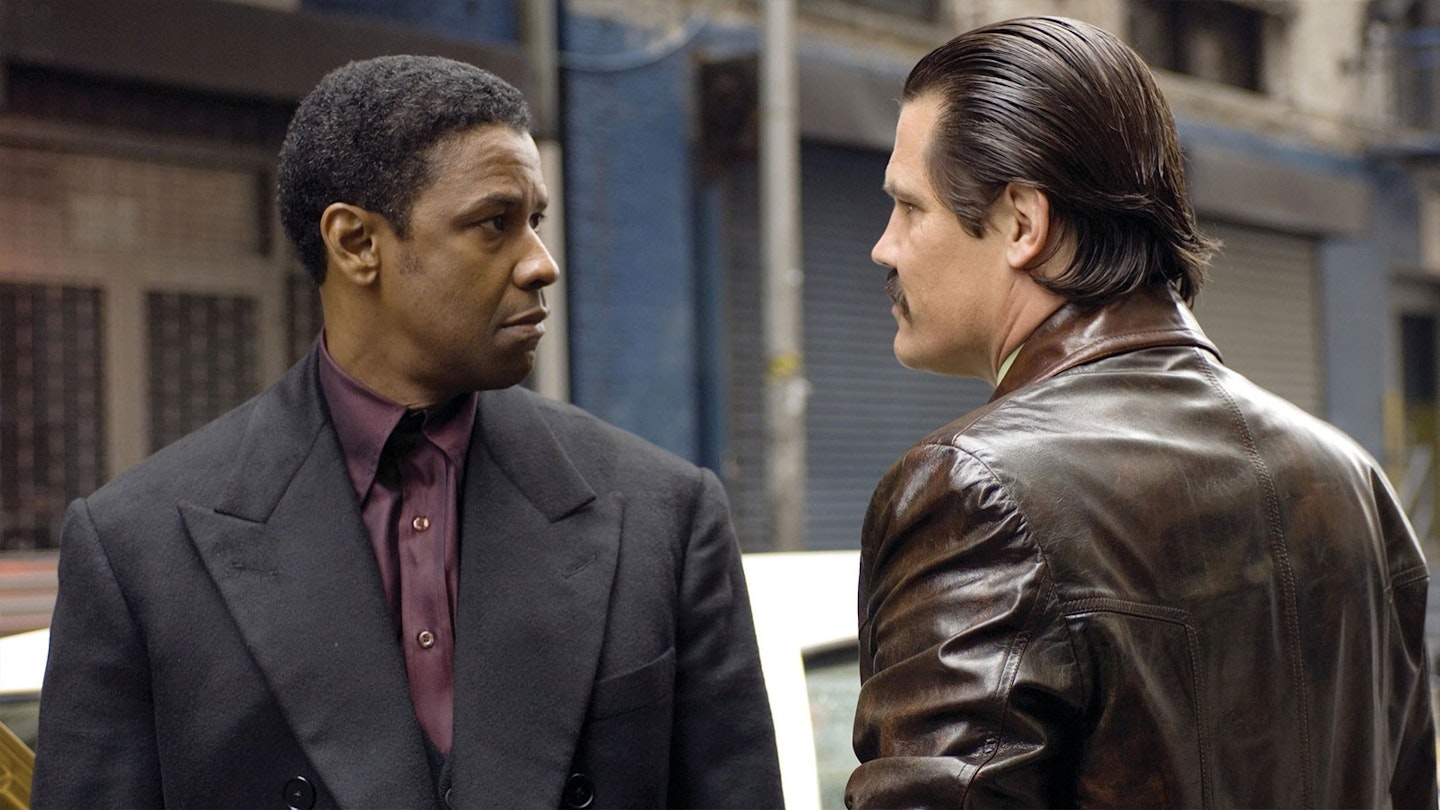
It has been something of an unwritten rule (so, now we're writing it) that a combination of Denzel Washington and one of the Scott brothers leads to great things. He worked with Tony several times, but his first gig for Ridley tapped his dramatic side more than his action man ability. As Frank Lucas – the swaggering, charismatic criminal, loosely based on the real-life Lucas – he's fantastic, clawing his way up the ranks and rising to a position of real power. You don't often see Washington playing truly villainous people, but he fully embraces Lucas' dark side while also keeping him a watchable blend of charm and cunning. Surrounded by the likes of Russell Crowe, John Hawkes, Chiwetel Ejiofor and Josh Brolin, it's a little shocking that he didn't at least score an Oscar nomination for the role. And now, we're eagerly anticipating his reunion with Scott for the Gladiator sequel.
8) Devil In A Blue Dress (1995)
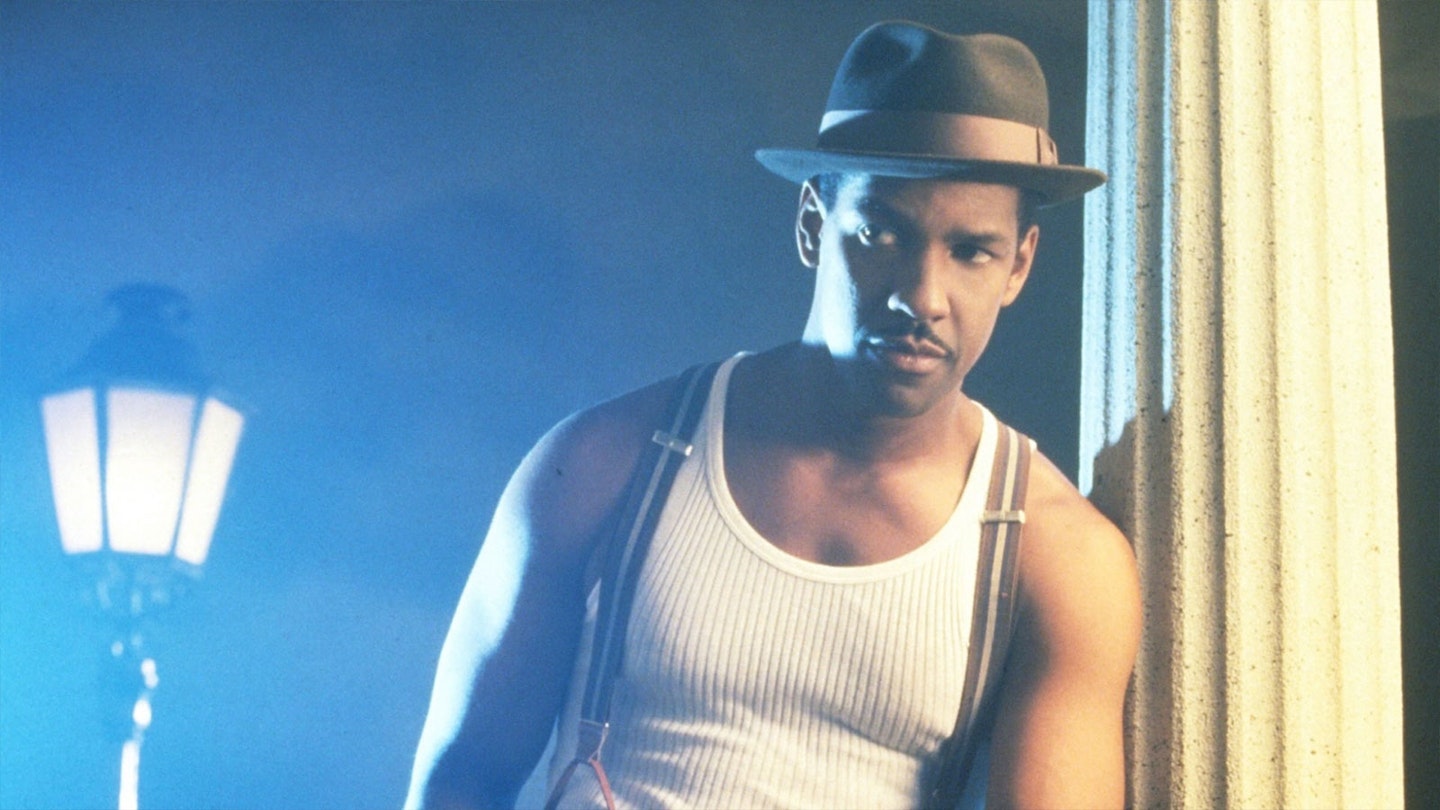
Until he equalized for a second time, Denzel Washington had never made a sequel in his long and illustrious career. But in a fair and just world, we would be drowning in follow-ups to Devil In A Blue Dress, the glorious post-WWII noir that saw Washington play Walter Mosley’s rogueish private dick, Easy Rawlins – who becomes embroiled in a missing persons case that soon becomes clogged with a conspiracy going all the way to the top, and corpses going all the way to the bottom. Washington is as smooth and compelling as always, giving Easy a, well, easy charm and underdog spirit. But he’s also unselfish enough as a performer to cede the spotlight to Don Cheadle, whose terrifying, hilarious and unpredictable turn as Easy’s psycho chum, Mouse, put him firmly on the Hollywood radar. The scene where Easy tries to deal with a drunk and volatile Mouse is an all-timer. Beautifully directed by Franklin (who also wrote), it’s finally getting the recognition it deserves, just a couple of decades late.
7) Glory (1989)
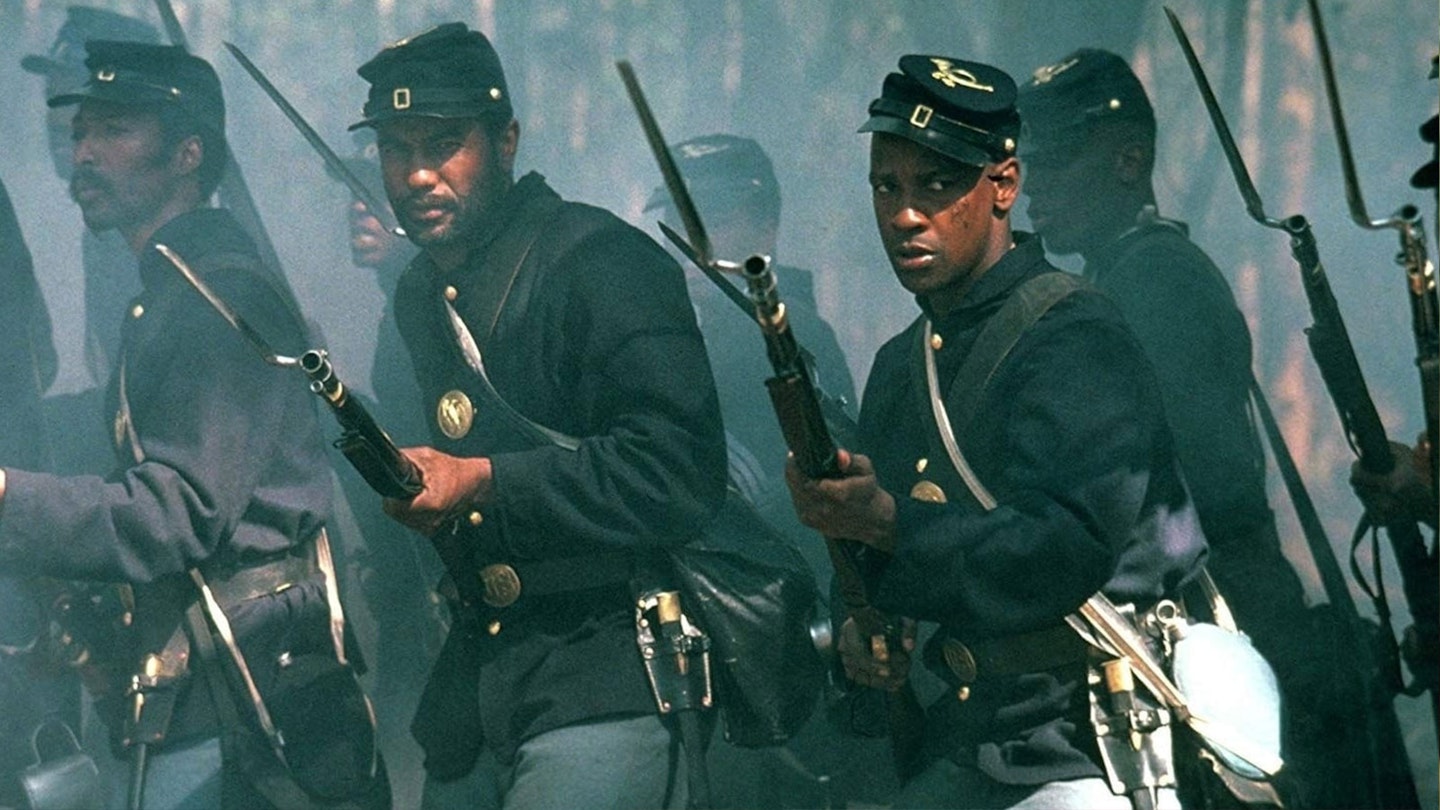
This 1989 drama, about the first all-Black volunteer company in the US Army, is terrific – with an ensemble cast boasting Morgan Freeman, Andre Braugher and Matthew Broderick. Yet amidst all the heavyweight performances and bravura battle sequences, the scene for which it is best known is an extended close-up of Denzel Washington’s face, as his escaped-slave character Trip is brutally flogged for disobeying an order. Not saying a word, Trip just locks eyes with his captain (Broderick), his fierce, unflinching gaze speaking volumes. Finally, one single tear trickles down from his right eye. It’s an astonishingly powerful image that is impossible to forget, and just one element of a performance that established the 34-year-old Washington as a powerhouse actor: the idea to have Trip’s back covered in horrific scars came from him, after seeing an old photograph of a similarly disfigured slave. Rightly, he picked up the Best Supporting Actor Oscar.
6) He Got Game (1998)
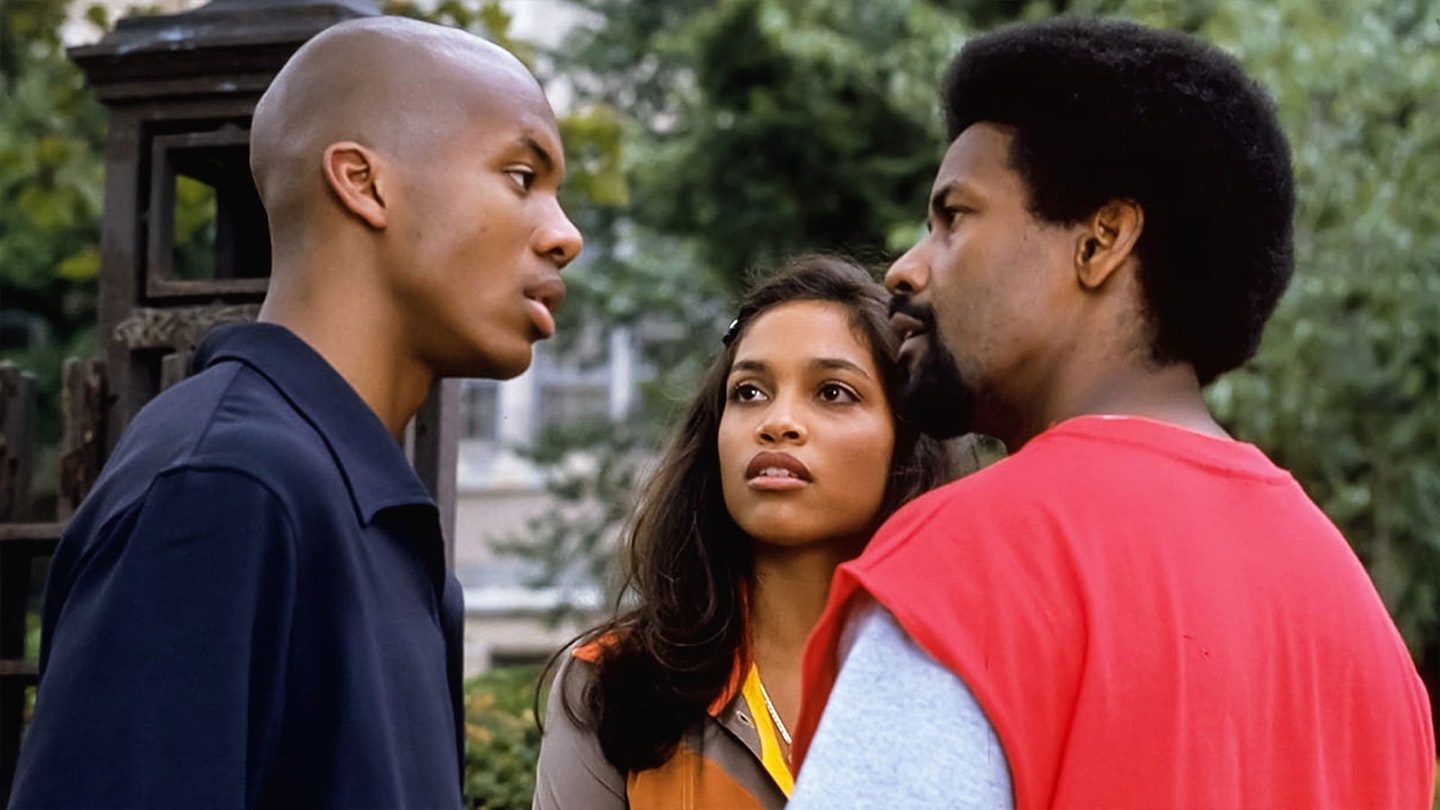
One of many Spike Lee joints across Washington’s career, He Got Game twists that played out old sports movie idea – a character has to win to redeem themselves – by casting the actor as a father who’s already been judged a lost cause, but who needs sport to redeem his son. Jake Shuttlesworth is in prison for the accidental death of his wife, but he’s been let out for a week by a governor to try to persuade his basketball starlet son to play for the governor’s old college. His son, though, is less than pleased to see his old man. It’s a carefully paced and meditative movie, built around a role which gives Washington a lot to get his teeth into, and he plays Jake with a subtlety and restraint.
5) Inside Man (2006)
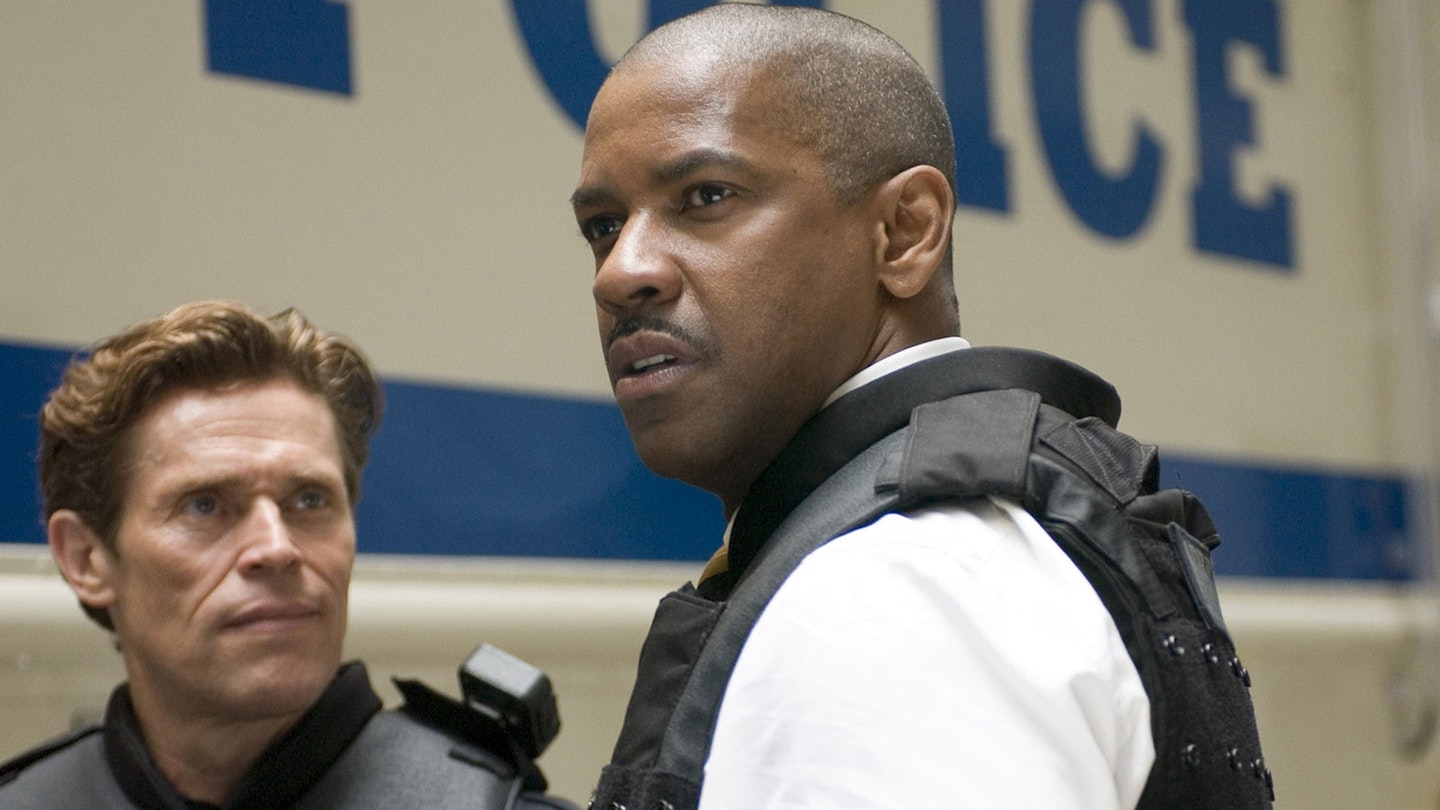
Denzel, plus heist movie, to the power of Spike Lee. Washington is Detective Keith Frazier, a New York cop trying to catch up with a band of thieves who always seem to be three, four or five steps ahead of him. They’ve taken control of a bank in Manhattan, and everyone inside is a hostage. Everything Frazier tries seems to backfire; the robbers seem to be trolling him. Lee plays this thriller straighter than usual, and Washington pulled from his recent run as Brutus in Julius Caesar on Broadway in Frazier’s pained nobility. “I kind of thought of Frazier as Brutus goes to Brooklyn,” he explained. This is a superior thriller with a twist which turns the moral stakes on their head. “Respect,” Clive Owen’s ringleader Dalton Russell points out, “is the ultimate currency.”
4) Man On Fire (2004)
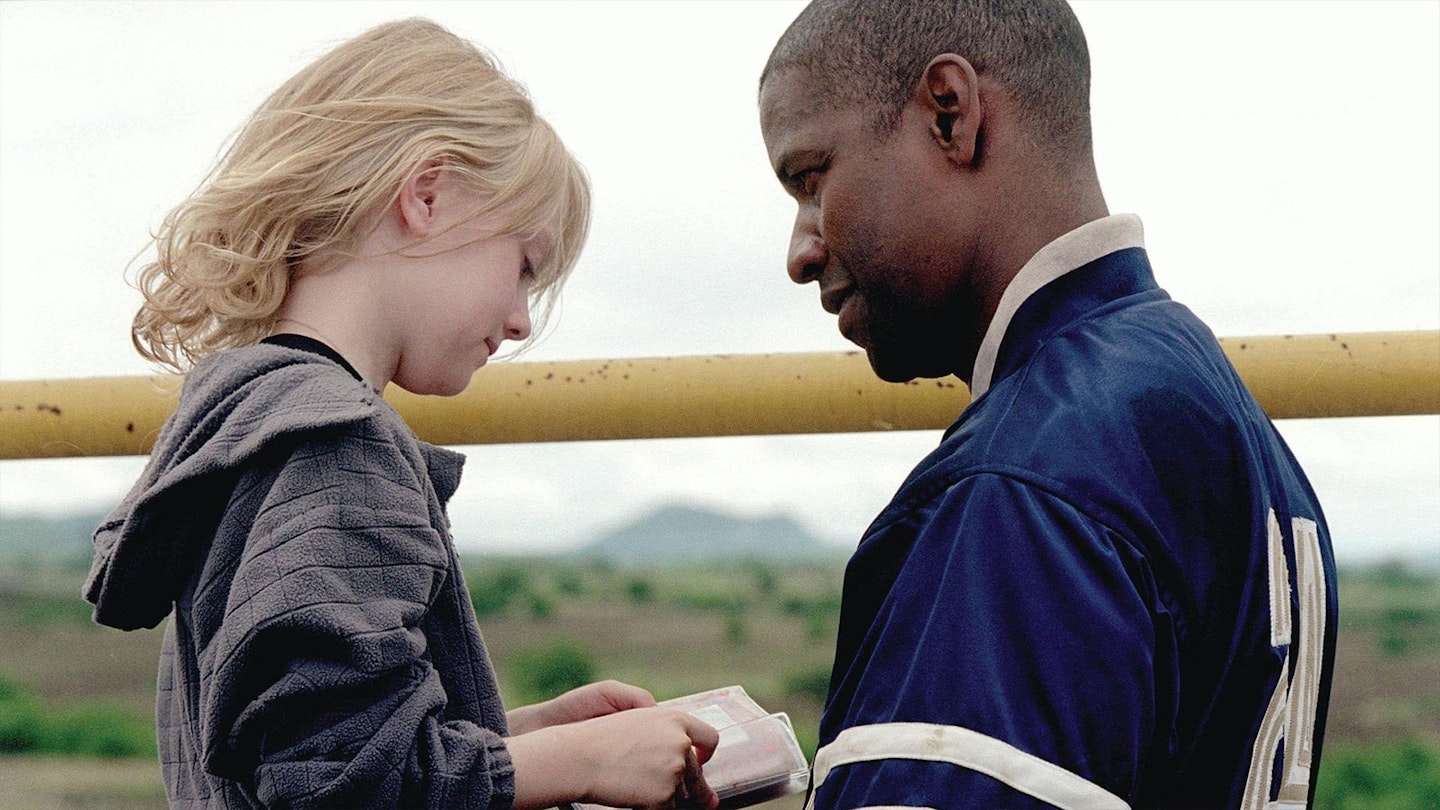
Part of what makes Washington so watchable is that no matter how wayward, how compromised, or how Pyrrhic his characters’ victories end up being, you always get a sense of a deep, profound moral centre in there somewhere which has become obscured. Tony Scott’s Man On Fire is a good example: former CIA guy John Creasy is now a miserable, alcoholic mercenary who hits rock bottom, but finds new purpose in keeping his boss’s young daughter Pita (Dakota Fanning, with whom he reunites on screen in The Equalizer 3) safe from kidnappers. Soon, though, dark forces capture her, and Creasy’s got to get Pita back. Man On Fire is a quite extravagantly bloody movie – especially the second half – and Creasy’s determination to protect the youngster becomes wilder and wilder. And by that, we are obviously referring to the fact he kills someone by sticking a bomb up their bum.
3) Malcolm X (1992)
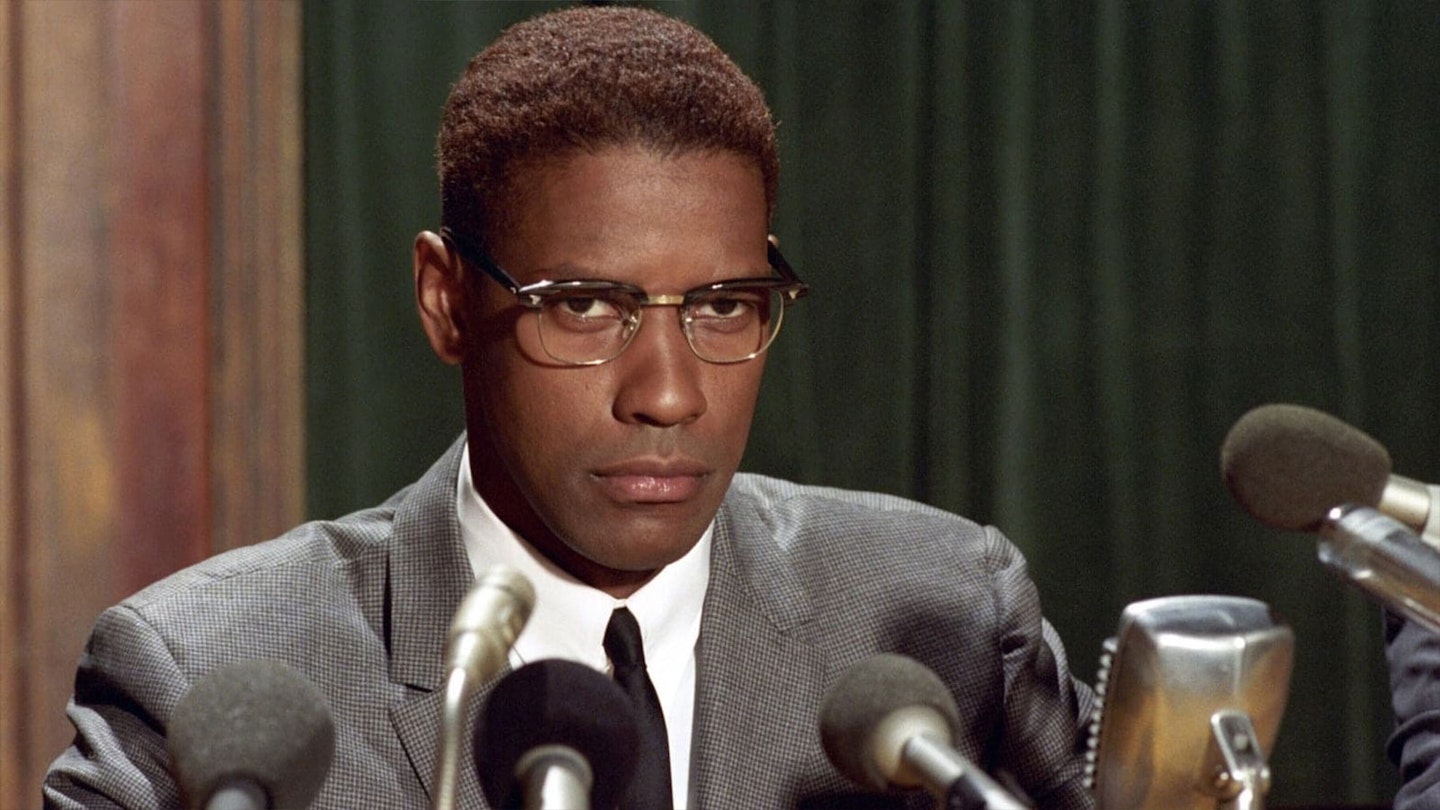
Spike Lee’s epic biopic of the civil rights leader was his first collab with Washington, and by the time it arrived in 1992, it had taken a quarter of a century to come together. James Baldwin first worked on a script in the late ‘60s; later he said he’d “rather be horse-whipped” than do it again. Norman Jewison, a white director, had been on board, but Lee led calls for a Black director. Even more protests and criticism swirled, but in the end there was no arguing about Washington’s powerhouse central performance: less a picture of one man than of three or four, as Malcolm X evolves from light-fingered teenager to spiritual leader. Al Pacino took the Best Actor Oscar, to widespread disbelief. “I'm not the only one who thinks Denzel was robbed on that one,” Lee reflected later.
2) Crimson Tide (1995)
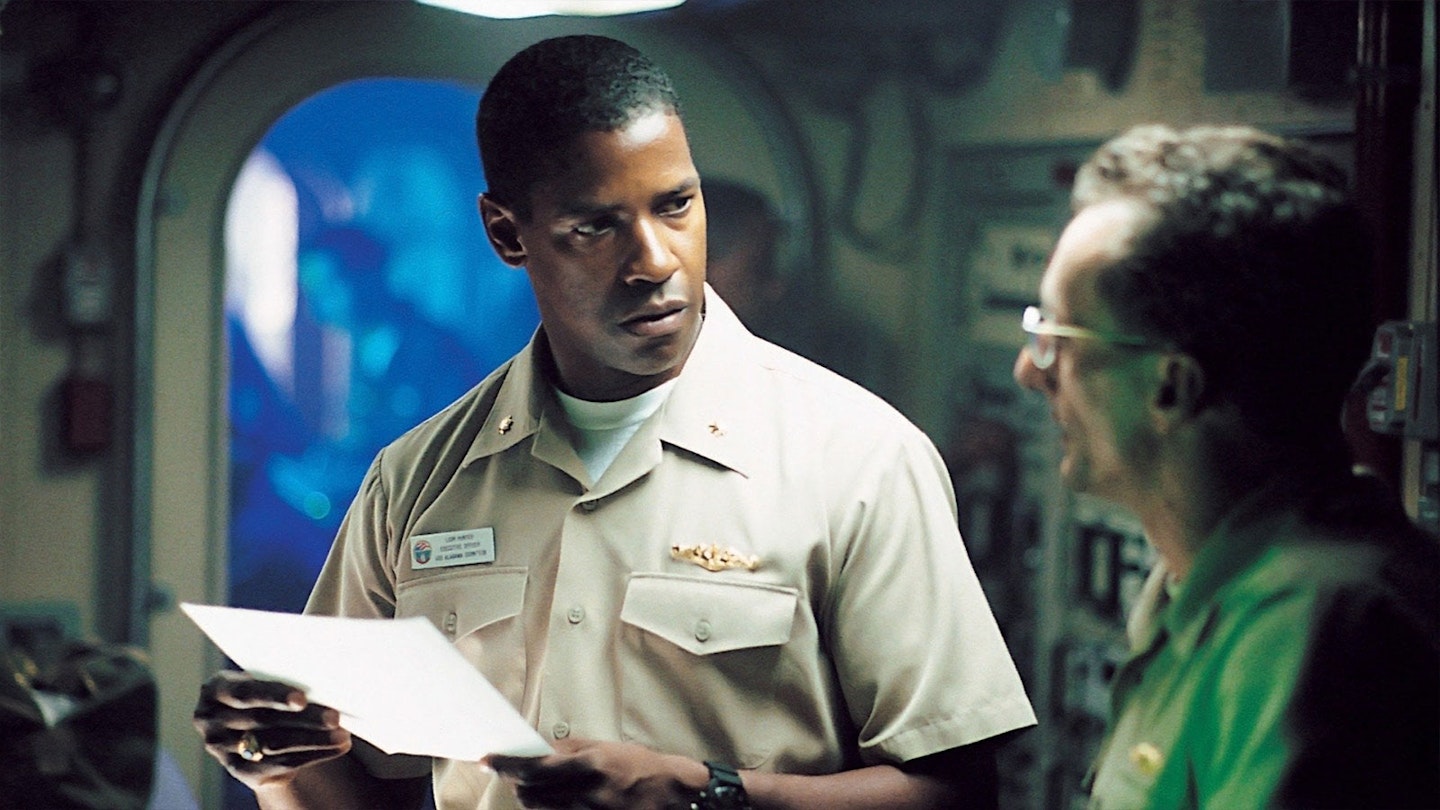
The start of a fruitful collaboration between Washington and director Tony Scott, Crimson Tide sends the actor out to sea (or under it) as the freshly-promoted executive officer of a nuclear submarine. It's not every performer who can go toe to toe with Gene Hackman, but Washington was more than up to the task as level-headed Lieutenant Commander Ron Hunter, who nevertheless angrily clashes with Captain Franklin Ramsey when Russian ultra-nationalists threaten to lob missiles at the States and Japan. It's a slow-burn of a performance from Washington, who buttons down his natural charisma, letting it show through only occasionally as the two men jockey for command of the vessel and lives are risked. Infamously, he fought more with Quentin Tarantino, deeming some of the filmmaker's script additions to be racist – though the two buried the hatchet some years later.
1) Training Day (2001)
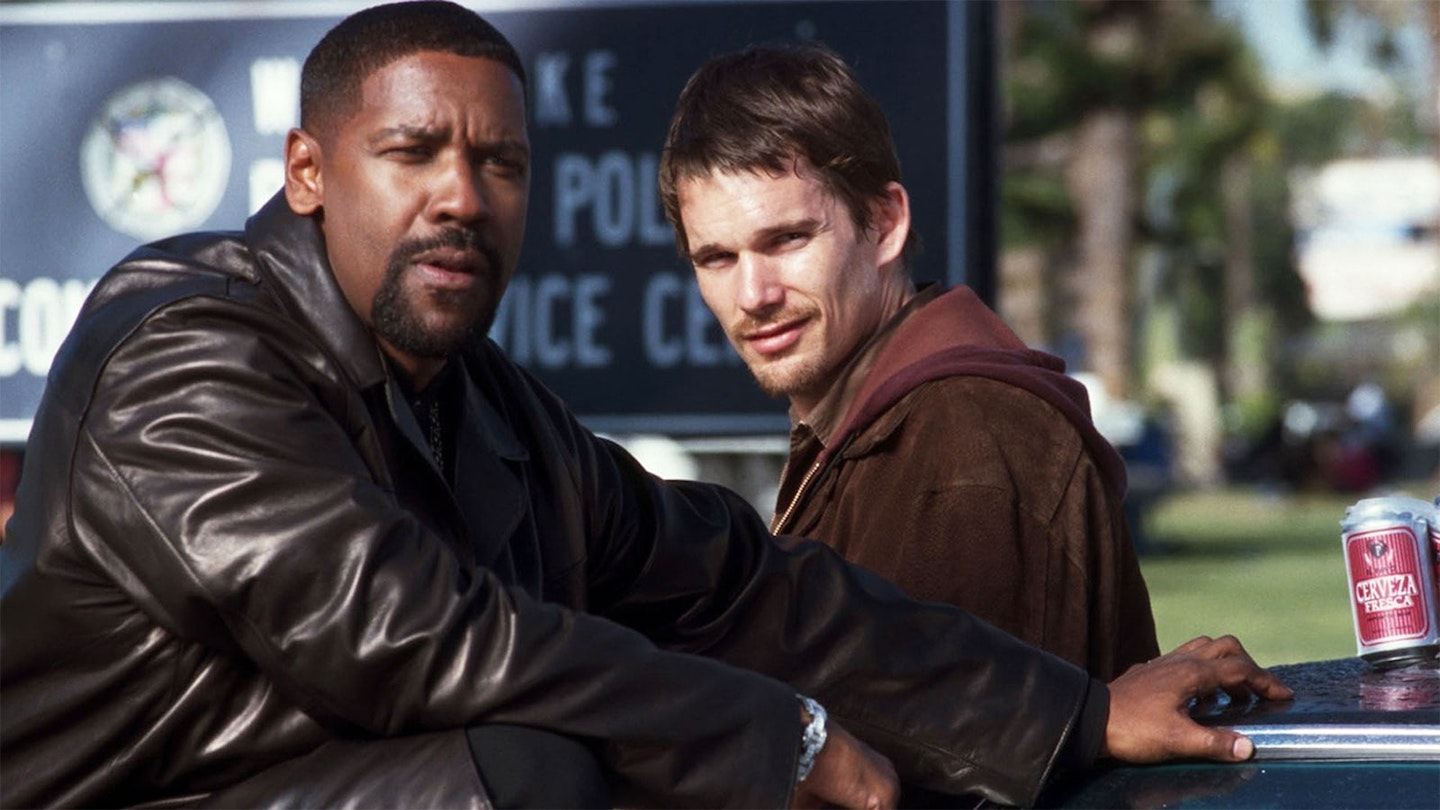
One recurring theme in Washington’s parts is authority figures who are so prepared to beat the bad guys that they’re willing to go as far beyond the bounds as their quarry. Detective Alonzo Harris is perhaps the most extreme example: within the first few minutes of Antoine Fuqua’s thriller, he’s forced his junior partner Jake (Ethan Hawke) to smoke weed at gunpoint, then revealed it’s actually laced with PCP. He’s not a good dude. Over 24 hours Alonzo and Jake go deeper and deeper into a deeply corrupt Los Angeles while Alonzo attempts to outrun bad decisions from his own past. Loose and energetic, Training Day is a platform for Washington’s most out-of-control, unpredictable performance yet, and he has enormous fun with it. Boom!
